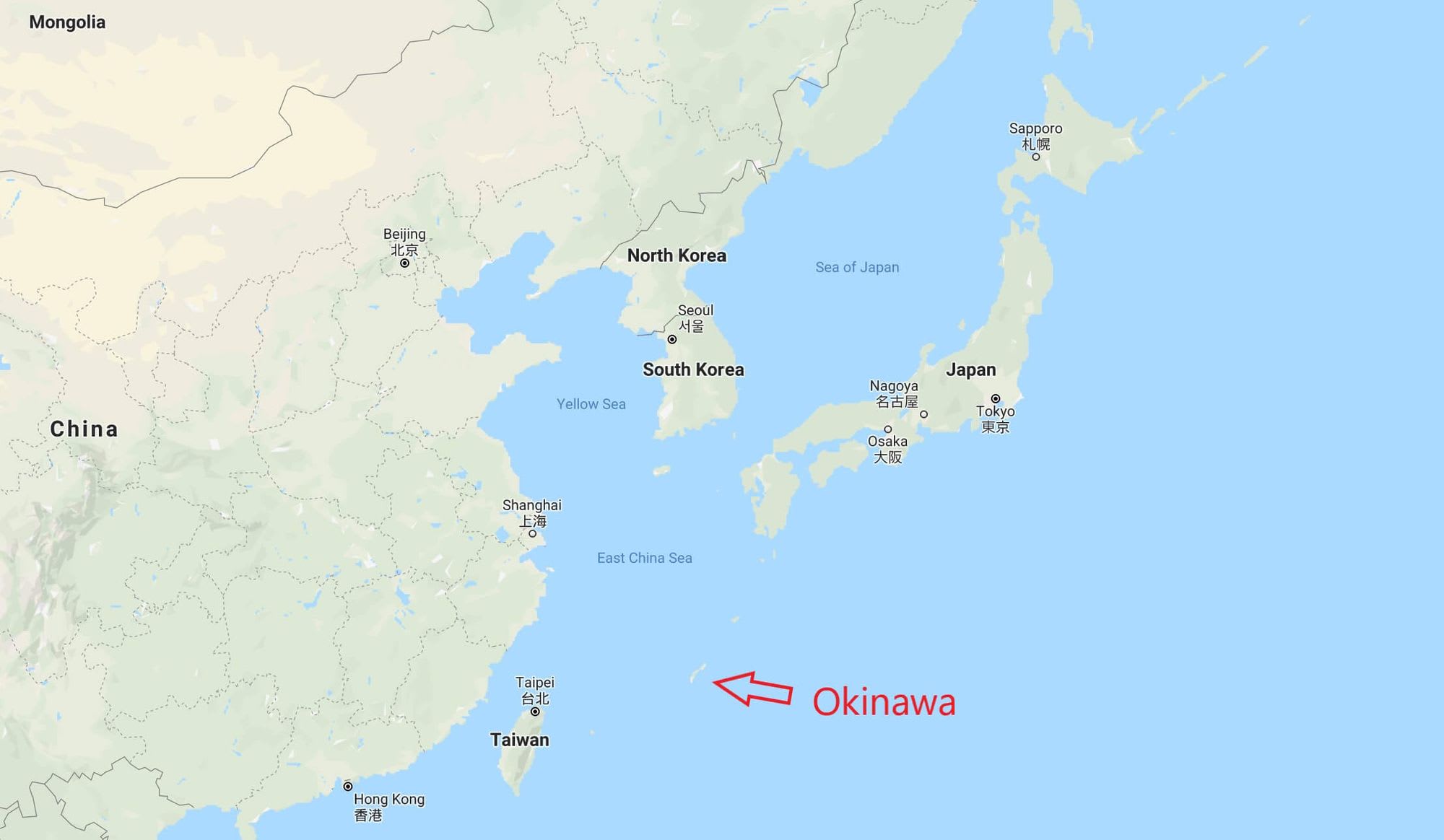FwdConf is X-Team's asynchronous conference that ran from the 6th until the 10th of April 2020. This is a recap of its third day, where we interview Chris Burkhardt and Paul McCrodden, two X-Teamers who have lived and worked in Japan for many years now.
In this interview, we discuss the challenges and joys of living and working in a country with a unique culture. If you want to jump to the other interviews of FwdConf or listen to digestible audio snippets from each interview, click here.
Living and Working in Japan
Moving to Japan
Chris is originally from the United States. His first experience with Japan was in 2006, when he traveled to Okinawa to visit his girlfriend. He loved the island so much that he ended up visiting it every year after that. Once he had the opportunity to work remotely, he moved there. He has lived in Okinawa for ten years now.

He was able to move to Okinawa because he had his own company as a web developer and designer for the entertainment industry, and his team was mostly based in Vietnam. He could live on the beautiful island of Okinawa, be together with his girlfriend, and still be relatively close to his employees in Vietnam. It was a win-win.
Paul, originally from Ireland, visited Japan for the first time in 2013. It was the first country he traveled to on his own, and it was a big culture shock because it was so different from the Irish culture he'd grown used to. It felt refreshing.
So he decided to get a working holiday visa for a year to travel the country. He snowboarded in Hokkaido, visited Tokyo, and stayed in Kyoto for six months, where he met his now-wife. They stayed in Ireland for a while, but ended up returning to Japan. They've lived in Ishikawa for a few years now.
A Country Opening Up
Paul was able to get the working-holiday visa because Ireland and Japan have a bilateral agreement to give people under 30 the ability to apply for such a visa. But you don't need to be from Ireland or under 30 to move to Japan. Developers who want to live there can also apply for what's called a highly-skilled professional visa.
The country is issuing more of these visas because of its aging population; the Japanese government realizes that foreign, highly skilled workers will have relatively high salaries and, as a result, will send more taxes their way.
A Different Culture
Chris brought up that remote work doesn't really exist yet in Japanese society. Loyalty and community are the most important values in Japan. That means going to work every day, helping one another, cleaning up, and in general having a physical connection with your company, your colleagues, friends, etc.
Paul said that Japan isn't as futuristic as people tend to believe. Not everything is hyper-advanced. Hardware perhaps is, but software is not at the same level as people from other countries might be used to. Online banking, for example, is still very difficult and non-intuitive. Everything is very physical in Japan. You want a physical flier to advertise something over Google AdWords.
Software isn't very advanced in Japan in part because most Japanese companies are still strictly hierarchical. Young Japanese developers might want to push forward new software ideas, but these ideas often get squashed by executives who are used to a particular way of doing things. Japan has a very risk-averse culture.
The hierarchical culture leads to scenarios where people don't leave until the executives leave, even if that means you only leave at 11 PM. When Chris was contracted by one of the largest Japanese banks to create an app, he worked eighty hours a week (and that was a good week). There was enormous, unspoken social pressure to stay in the office until the boss had left the building.
While this is generally really taxing, it creates an incredible bond with your colleagues too. You share the feeling of being in it together, of going through the struggle together.
Taking Ownership
Paul said that Japanese people really take ownership of their job. They take it seriously. There's a level of trust in the community that Paul hasn't seen anywhere else. They work hard and they do it well too.
You don't need to chase anyone and you don't need to check if someone's doing the right thing. You can trust the other person that they'll be 100% dedicated to what they're doing.
This is partly because kids are raised differently in Japan. On the way to school, you see children carrying their heavy backpacks with their parents walking next to them. Kids have much more responsibility and are taught to carry their own stuff from an early age.
Joys of Living in Japan
Chris said that living in Japan has made him more relaxed and patient. He's originally from Los Angeles and it took him hours every day to commute to work (which was only fifteen miles away). Living in Okinawa, with its laid back culture, has been a positive experience for him.
Additionally, Japanese people are always friendly. They have no attitude. Everyone is concerned about how the other person feels. They don't like to cause problems. This, in turn, means that Japan is generally a very safe place to live too.
Diet is another good thing. It's very easy to go to the store and get sushi and sashimi, cut fresh in the morning from the people who work in the store, and it will only cost you $5. The same goes for healthcare: it's cheap, fast, and well done.
Paul said that it's important, when you've lived in two countries, to understand why things are different in one country over the other. Sometimes, you think something in one country is worse simply because it's done differently in the country you're from.
He brought up the example of cleaning a shrine in Japan. Sometimes, the shrine is already very clean, but people are still cleaning it. It seems like a waste of labor, until you realize that people are doing more than just cleaning the shrine. It's a spiritual cleaning, of sorts, a cleaning to show that you're part of the community and that you're helping to make the group stronger.
Japan has taught Paul to be more conscious of others. He brought up the example of when his wife moved over to Ireland a few years ago and had brought omiyage tea as a gift. Paul thanked her for the gift and asked if the tea bags were biodegradable, which they weren't. It was a small, simple question, casually asked, but it had brought down the value of the gift and made his wife lose face.
These subtle things make you much more conscious of the things you're saying, how you address people, and the effect that your words have on the people around you.
Challenges of Living in Japan
The Japanese language is one of the biggest challenges of living in Japan. Japanese is very complicated. Chris studied it for four years and got up to an intermediate level, but he said that the leap from intermediate to business proficiency in Japanese is about 5,000 kanji more.

The language is so complicated that neither Paul nor Chris can do much themselves. Anything involving contracts, for example, needs to be done by someone who's fully proficient in Japanese.
Paying taxes is another example of something that's impossible to do if you're not fully proficient in Japanese. On top of that, doing your taxes in Japan is generally a very involved process. Paul's wife spends weeks on their family's taxes. It's a very bureaucratic process. Paying someone to help with taxes costs thousands of dollars.
One other challenge is that it's hard to make a deep connection with a Japanese person. Not only is there the language barrier, but there are many layers to the Japanese society.
The top of the layer is friendly; Japanese people make you feel good and are always smiling. The level underneath that will show you opinions and feelings, but that's already a level most foreigners won't ever get to see. There are levels underneath that too, which Paul and Chris haven't ever seen and can only guess at.
Recommending Japan
Japan is a wonderful and unique country to visit, if possible, on a one-year working holiday visa. But living there on a more permanent basis means you'll have to face the challenges described above.
Much of it will depend on what you're interested in and on the type of developer lifestyle that you want to lead. If you're interested in the Japanese language and/or culture, living there will be easier than if you're not.
Lifestyles where you're not part of the system or the community are hard in Japan. Anyone who wants to be different makes for a weaker system, which is not desirable in Japanese society. But if you're willing to learn the language and be part of the system, you'll have excellent food, education, healthcare, and a safe living environment.
If you enjoyed this interview, please go have a look at our bigger post where we summarize the whole conference through audio snippets, quotes, and Slack highlights. There's a lot more to be found there!
Over the next two weeks, we will publish similar summaries of the other days of FwdConf and link them below. See you soon.
- FwdConf Day 1: State of Serverless 2020
- FwdConf Day 2: How to Be a Better Programming Mentor
- FwdConf Day 4: State of Location-Independent Life in 2020
- FwdConf Day 5: Parenting as a Remote Worker
